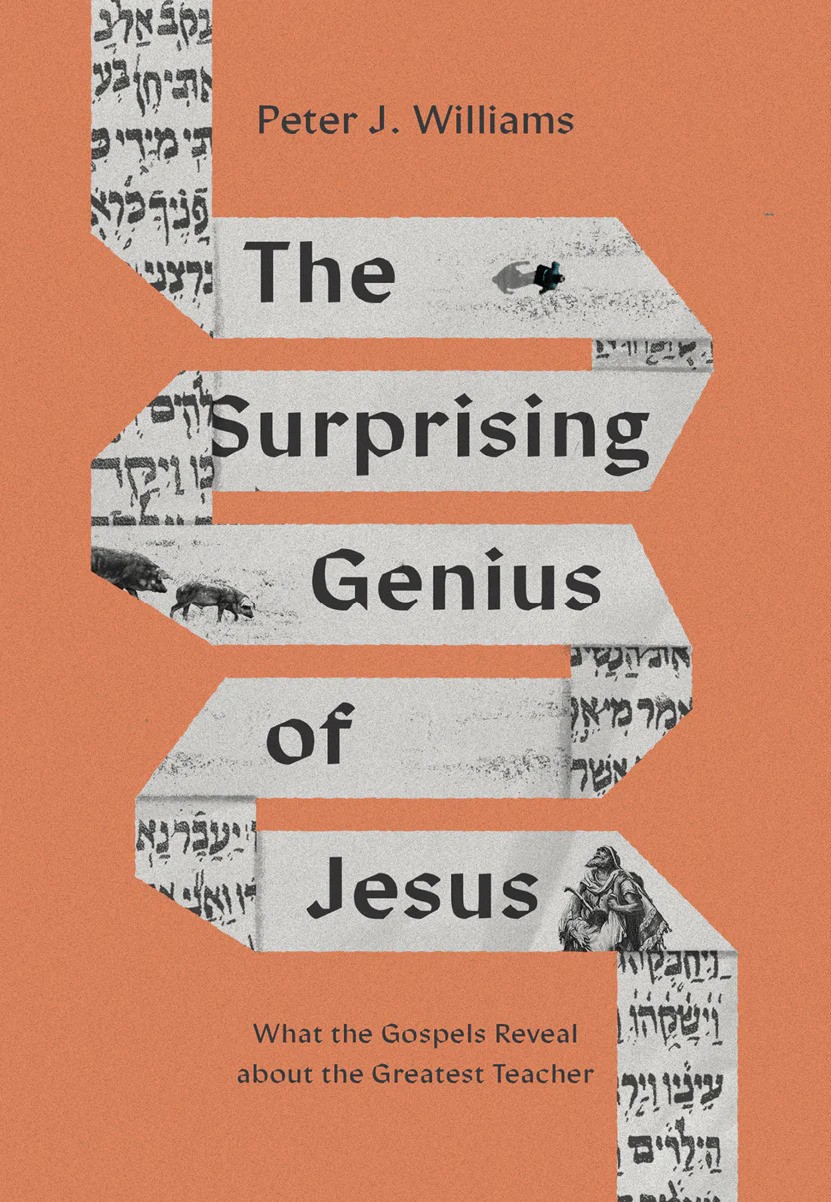I have always wanted to write short stories. My English teacher told me the greatest short stories leave readers satisfied yet wanting more. They are an exercise in conciseness. A test of clarity. You have to distil the substance of your message and embody it in your characters. Every word matters. And what is unsaid matters even more. At least, that’s what my teacher told me: learn from Hemingway, Chekhov, Poe, she said.
Peter J. Williams would tell me to learn from Jesus.
In The Surprising Genius of Jesus, Williams carefully analyses every word said and unsaid in the parable of the Prodigal Son to showcase Jesus as the greatest short storyteller of all time.
The parable is a familiar one. The younger brother scorns his father, demands his inheritance and squanders it. Considering himself unworthy to be called a son, he resolves to return and beg his father to be accepted as a servant. He is welcomed by his father who celebrates his return, though his older brother is angry and does not come in to celebrate (Lk 15:11–32).

The Surprising Genius of Jesus
Peter J. Williams
When someone thinks of Jesus, “genius” is not likely the first word that comes to mind. But when studied in detail, Jesus’s teachings and interactions with others combined high levels of knowledge and insight, verbal skill, and simplicity—showing his genius.
In The Surprising Genius of Jesus, Peter J. Williams examines the story of the prodigal son in Luke 15 to show the genius, creativity, and wisdom of Jesus’s teachings. He used simple but powerful stories to confront the Pharisees and scribes of the day, drawing on his knowledge of the Jewish Scriptures to teach his audience through complex layers and themes. Williams challenges those who question whether Jesus really was the source of the parables recorded in the Gospels, pointing readers to the truth of who Jesus is and why that matters for them today.
One Word’s Difference
In the older son’s outburst, Williams highlights the opening word—“Look”—and the absence of another word: father.
He is supposedly the model son, but the absence of this word shows that, though physically closer to the father, he is relationally more distant that the younger son ever was. The storyteller conveys all this through just one missing word. (23)
In contrast, despite the younger son’s offences, he always addressed his father as “Father” (Lk 15:12, 18, 21). Here Jesus exemplifies the most important rule of storytelling: show don’t tell. He doesn’t spell out the bitterness behind the older son’s service, nor the artificial, transactional relationship he has with his father—he shows it with one missing word. As he does so, Jesus compares the listening Pharisees and scribes to the older son; questioning whether they considered God as a father in the true sense of the word. This is the paragon of conciseness. This is the zenith of short-story writing. This is genius.
Echoing Other Stories
In his second and arguably best chapter, Williams links the Prodigal Son to the stories of Genesis. The first and most convincing comparison is with Jacob and Esau, another story of two brothers, conflict and an inheritance. Williams begins by drawing a connection between the welcome both young brothers receive after their wrongdoing: “his father … ran and embraced him and kissed him” (Lk 15:20); “Esau ran … and embraced him and fell on his neck and kissed him” (Gen 33:4). Williams argues the particular rarity of the Hebrew word for “kissed him” would have pricked the ears of listening scribes to further strengthen this connection.
Aligning the parable’s father (who represented God), with Esau (an ungodly man vilified by the Jews), would have shocked the scribes and Pharisees. But this comparison makes sense in the context of Genesis. In Genesis 33:10, following Esau’s forgiveness, Jacob likens seeing the face of Esau to seeing the face of God.
If even a person like Esau, who had previously planned to murder his brother, could accept his returning brother, how much more should the older son accept his brother? Esau was cheated out of all his inheritance as firstborn, but the older son is worried about a generous welcome for his brother, despite his own inheritance being secure. (42)
Williams drew countless connections between the Prodigal Son and the stories in Genesis as if pointing out the parable’s family tree. It felt familiar yet foreign, as every story in Genesis absorbed new shades of meaning through their connection with the parable. I felt like a man who had finally learned to appreciate fine art.
The art of storytelling is the art of finding the best word to capture and communicate the truth. Williams, through one parable shows that Jesus’ every character, every idea, every word, is dripping with truth. A truth with layers peeling back to when God first spoke.
Not A Story Analysis Without Holes
Some of Williams’ connections are suspect. I do not see much connection between the parable and the story of Judah and Tamar in Genesis 38 (Williams does acknowledge this parallel is less convincing). I am also not convinced by a connection to Joseph’s story—which is made on the basis of the shared themes of forgiveness and a ring and fine garments of linen appearing in both stories (Gen 41:42; Lk 15:22).
More significantly, The Surprising Genius of Jesus often pursues a myriad of textual connections to the detriment of the parable’s actual meaning. The reader is left marvelling at the genius of the storyteller, rather than being caught up in the wonder the story tells. I recognise the latter is not the stated purpose of this book, but I think that it should do both. Sometimes it reads more like a digestible academic review of a very, very short story.
Meeting With the Storyteller
An elderly retired minister once asked me, “When you wake up in the morning Alex, and the first thing you do is to go to meet with God in the word and prayer, what do you think God’s reaction is?” I didn’t know how to respond. I don’t generally feel anything in the morning, let alone wonder what God is thinking. “I feel he is at peace?” His eyes wilted, as he brought his hand to his forehead.
“At peace!?” His voice started to tremble. I couldn’t tell if he was angry or about to cry. “He has his arms wide open, looking for you every morning, running to embrace you.” His last words trickled out as he collapsed back into his chair, “He can’t wait to meet you.”
Here is a picture of revelling in the truth of our Father’s proactive, embracing love depicted in Luke 15. The Father’s love has practical significance for not simply our repentance, but our desire to meet with him in our reading of the truth. This desire to know him, to meet with him, is roused first from his desire to meet with us.
Williams ends his book with the practical encouragement that recognising Jesus’s genius should ultimately lead us to “accept him unreservedly as our teacher, guide, and Saviour” (113). He is the Storyteller who has entered into his own story so that we might be welcomed by our Heavenly Father. He is a Storyteller I can trust in. A Storyteller I can learn from. A Storyteller I want to meet.













